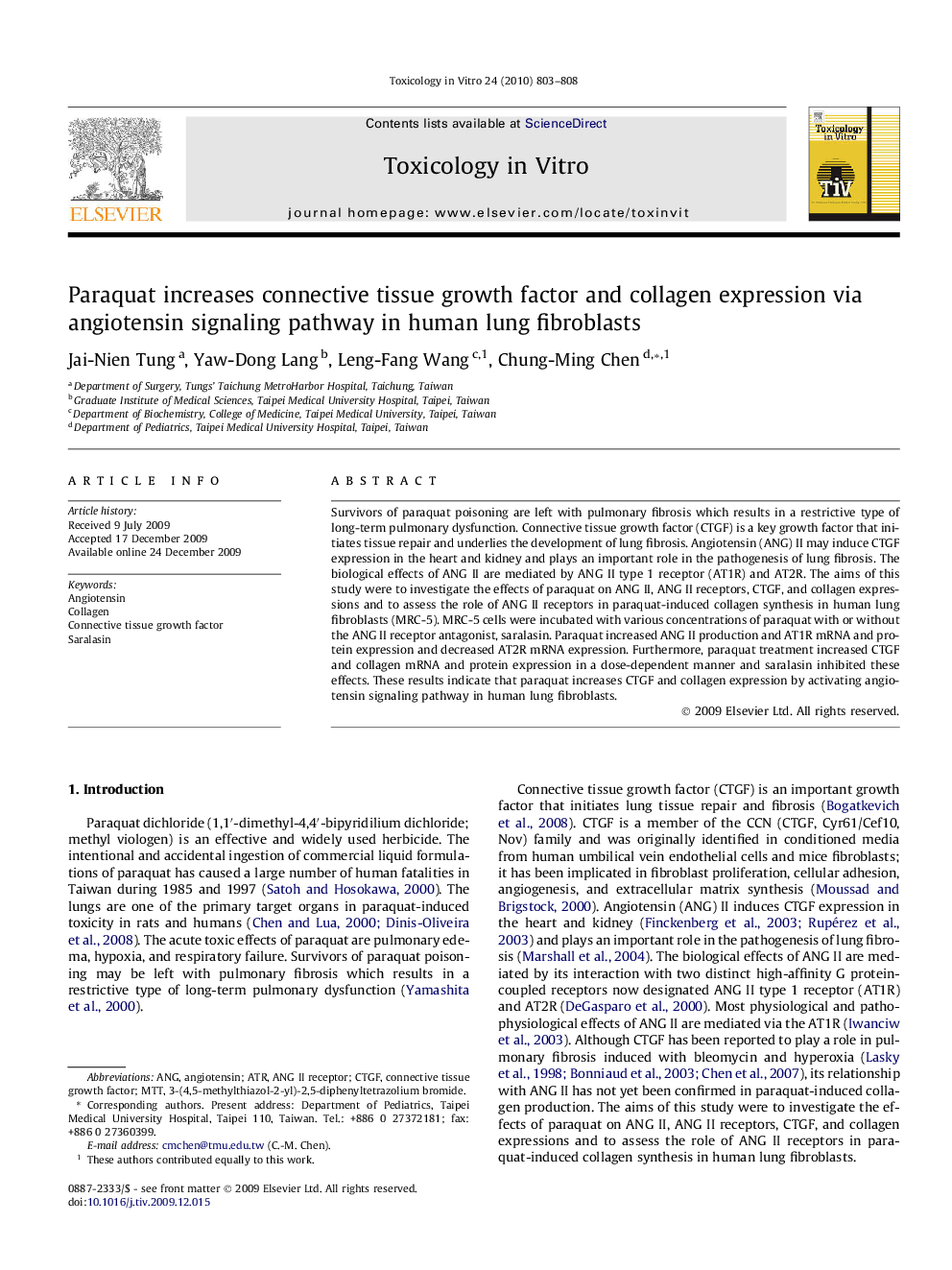| Article ID | Journal | Published Year | Pages | File Type |
|---|---|---|---|---|
| 2602935 | Toxicology in Vitro | 2010 | 6 Pages |
Survivors of paraquat poisoning are left with pulmonary fibrosis which results in a restrictive type of long-term pulmonary dysfunction. Connective tissue growth factor (CTGF) is a key growth factor that initiates tissue repair and underlies the development of lung fibrosis. Angiotensin (ANG) II may induce CTGF expression in the heart and kidney and plays an important role in the pathogenesis of lung fibrosis. The biological effects of ANG II are mediated by ANG II type 1 receptor (AT1R) and AT2R. The aims of this study were to investigate the effects of paraquat on ANG II, ANG II receptors, CTGF, and collagen expressions and to assess the role of ANG II receptors in paraquat-induced collagen synthesis in human lung fibroblasts (MRC-5). MRC-5 cells were incubated with various concentrations of paraquat with or without the ANG II receptor antagonist, saralasin. Paraquat increased ANG II production and AT1R mRNA and protein expression and decreased AT2R mRNA expression. Furthermore, paraquat treatment increased CTGF and collagen mRNA and protein expression in a dose-dependent manner and saralasin inhibited these effects. These results indicate that paraquat increases CTGF and collagen expression by activating angiotensin signaling pathway in human lung fibroblasts.
